$50.00 left to free shipping
No products in the cart.
$50.00 left to free shippingAmidst this entire COVID-19 ordeal lies a basic principle that many of us can say takes a back seat in our lives.
Our hygiene.
From washing our bodies to brushing our teeth, everyday tasks we complete such as these are critical parts of lives but most of us will write them off as daily chores that you have been completing as far back as you can remember.
In a time like this, it is crucial that we do everything we can to limit the spread of viruses to protect those around us as well as our closest loved ones from infection.
The most contact with objects, other people and even ourselves come from our hands. To prevent the transmission of disease-carrying germs we must be especially discipline when it comes to keeping our hands clean throughout the day with all the activities we try to complete.
The two main methods to hand hygiene prevalent in our society today are hand sanitisers and good-ole soap and water – both are great at preventing the transmission of many viruses and bacteria and are much better than doing nothing to keep your hands clean.
But the next question that is always asked is “Is one more effective than the other?”

Washing your hands with soap and water is the most effective way of getting rid of germs which can help you stay healthy and avoid spreading them to others.
It significantly helps to prevent and slow the spread of infection.
There are many ways germs can be passed on, some examples include:
– Person to person
– During food and drink prep
– Surfaces of surrounding objects e.g. doorknobs and handrail
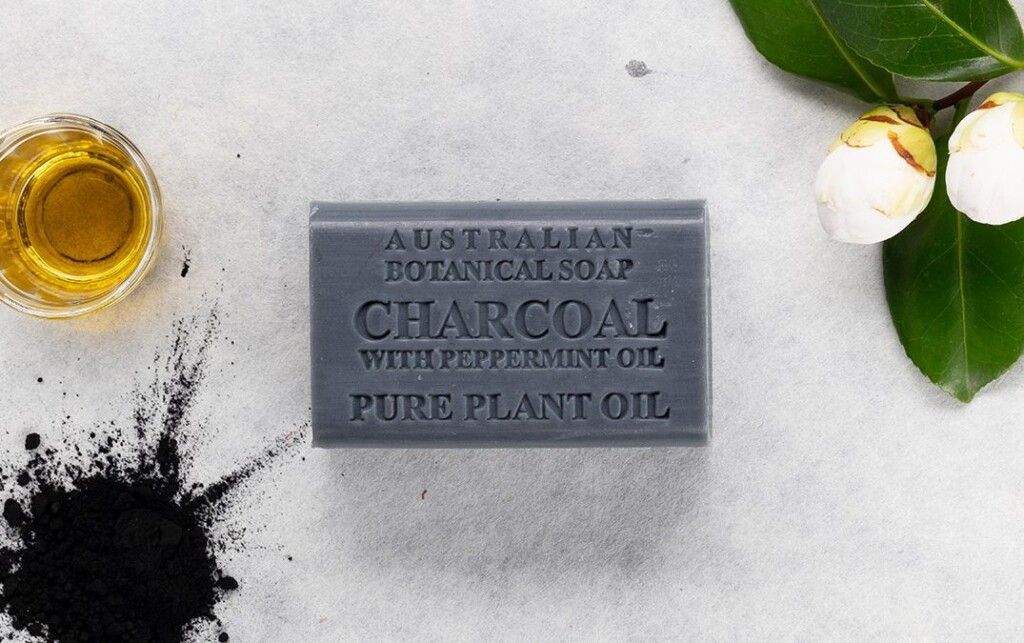
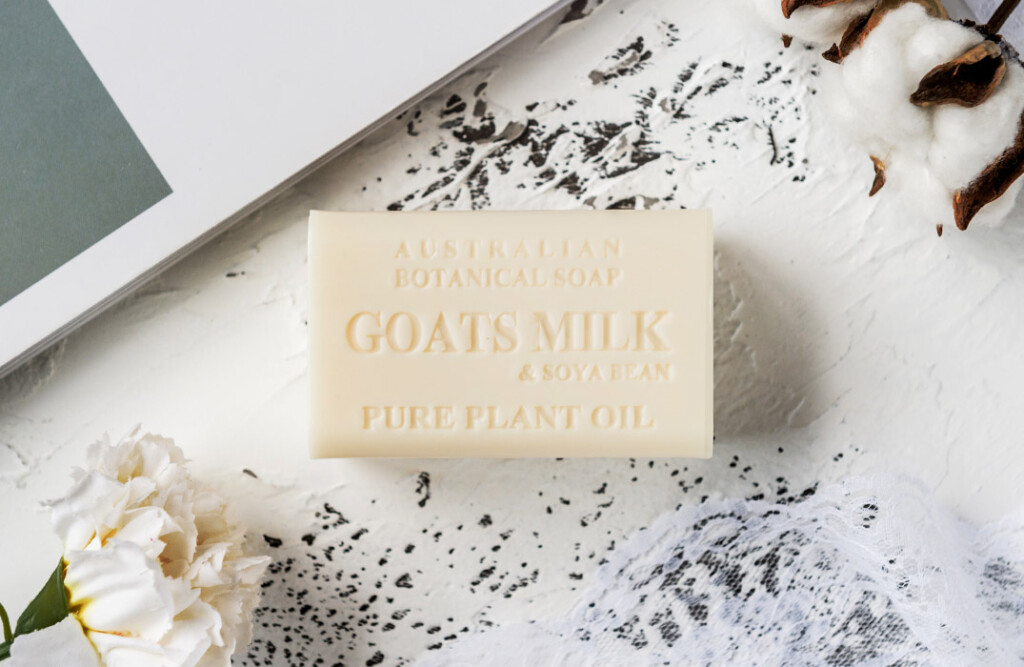
The most common places germs can enter your body and get you sick is your eyes, nose and mouth. Without even realising it people frequently touch these places, increasing the possibility of infection.
Right now, it is as important as ever to wash your hands frequently.
The most notable times to wash are:
– After you blow your nose, cough or sneeze
– After you have had close physical contact
– After you use the toilet
– After you feed or touch a pet
– After visiting public spaces
– After traveling on public transport
– Before and after you eat
It is all well and good that you are washing your hands more regularly but you must also ensure you are washing them thoroughly to have truly germ-free hands. A minimum standard of at least 20 seconds of scrubbing is recommended by many health professionals. The diagram below has been taken directly from the World Health Organization’s (WHO) website showing a step-by-step guide to correctly wash your hands.
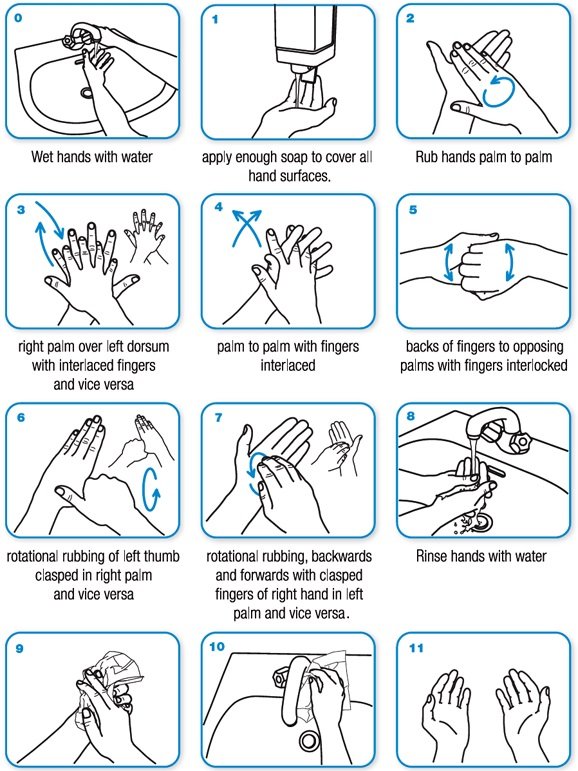
Effective in its own right, hand sanitiser is quite good at killing many types of germs and keeping our hands clean. Using a sanitiser with an alcohol concentration between 60-95% is critical as those that are below may not successfully eliminate germs and instead may merely reduce their growth.
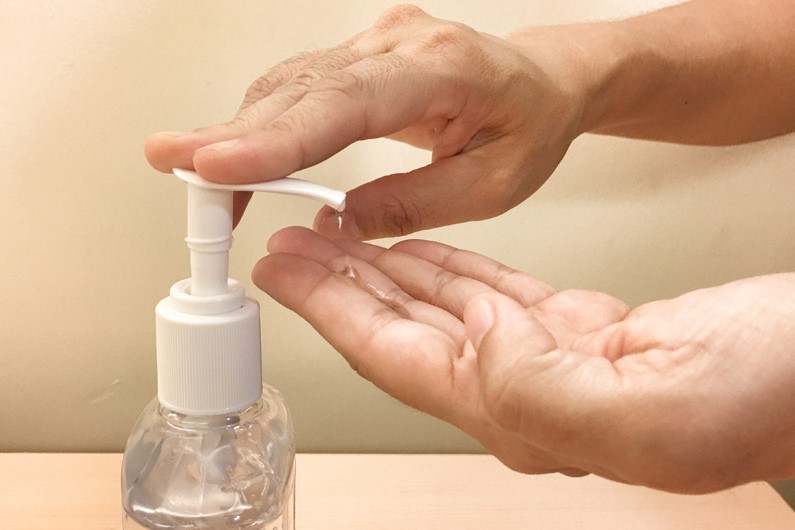
– Easy accessibility
– Portable, convenient
– Neutralises many microbes, viruses and bacteria
– Some brands are ineffective
– Can’t be used on grime
– Weakens immunity to germs
In the end, soap and water is the best method for cleaning your hands, getting rid of germs and preventing the spread of infections. Backed by many health professionals, soap and water is the gold standard when it comes to maintaining hand hygiene as it completely removes germs and grim from your hands.
Although most hand sanitisers are effective at killing many viruses and germs, it does not do so at the rate which soap and water can. In turn, it should never be used as a complete replacement. Hand sanitiser should instead be viewed as an alternative means for hand hygiene when soap and water is not readily accessible.
Ultimately, your go to for hand hygiene will be soap and water with hand sanitiser being a portable solution for those that are on the go for most of the day.
“Triple Milled Soap” the new buzz word of the soap industry has been turning heads but is there really any difference to the normal soap we have been buying for years?
The French started it years ago (can also be referred to as French Milled Soap) and nowadays many reputable soap companies are beginning to use this method because it is one of the most ethical, authentic and honest ways to produce premium quality soap for their customers.
We will now dive a little deeper into the process of creating Triple Milled Soap and normal everyday soap.
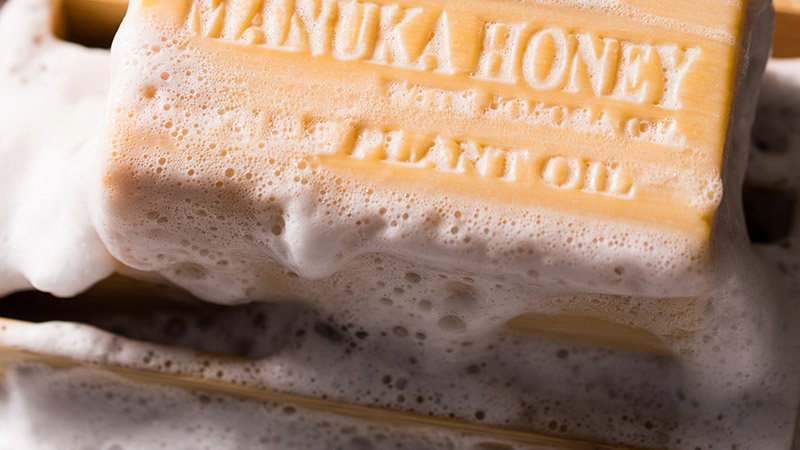
Manufacturing Normal Soap
This process incorporates the saponification of fats and oils and is the most commonly used manufacturing process to make soap. It requires heating fats and oils to encourage them to react with liquid alkali which eventually produces the soap and water content known as “neat soap” (with a little glycerine added).
Manufacturing Triple Milled Soap
The initial chemical saponification process is the same but the fragrances and colours are also added at the beginning of the process. This way, by the time it comes to the milling, the added ingredients are well mixed and evenly distributed.
The bar is cooled and then grated into fine particles which can vary in size and produce a rough, gritty texture.
To smooth it out and ensure a soft and luxurious texture the particles are put through a roller and turned into a paste. This is done at least three times, hence the title of “triple milled”. Repeating this process more than three times may actually cause the soap to become too dry. It is an artful process.
Triple milling can only be achieved as a commercial application. The materials used in the process are heavy duty and need specialist supervision. A domestic form of milling soap is called rebatching and will not be as smooth or last as long as properly milled soap.
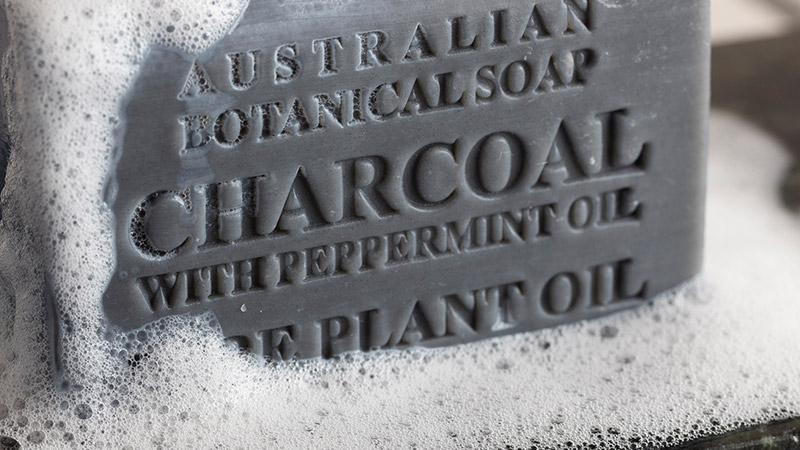
Considered the most efficient way to make high quality soap , the process extracts any excess moisture or air from the bar, leaving you with the purest form of soap available.
Triple milled soap is also much better for sensitive skin or those with skin allergies. Lye is a necessary component in the initial soap making process. Soap that is not milled still contain small traces of lye which then bond to the skin, trapping grease and dirt. By using Triple Milled Soap it leaves your skin clean and fresh without any chemical residue that may have been left over when using normal soap.
As mentioned above, the excess moisture that has been squeezed out results in a Triple Milled Bar that has a greater density compared to that of a normal bar. With greater density the bar will last much longer and produce a much richer lather, meaning more bang for your buck and you get the feeling of a more luxurious soap bar.
Our skin is covered by tiny hair follicles that have glands which produce oil (called sebum) helping protect our skin and hair from drying out. Sometimes dead skin cells on our body can become trapped in the sebum instead of rising to the top of the skin and being washed away.
The result, a mass build up of bacteria within the pores which ultimately becomes what we know as acne.
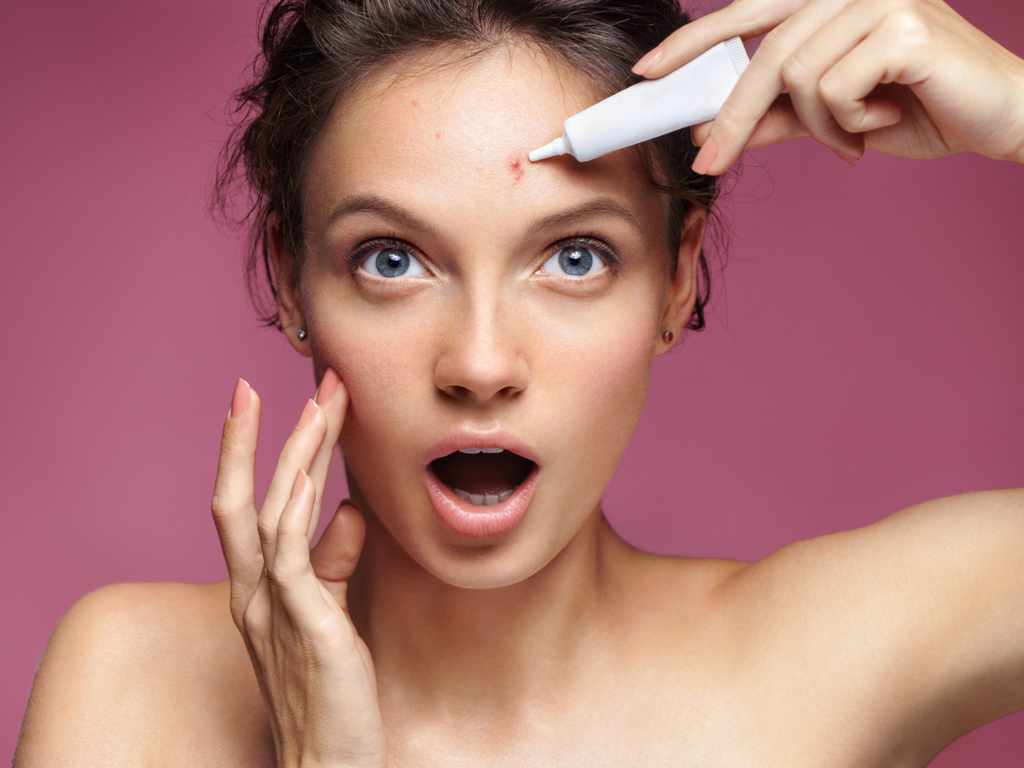
Acne comes in many forms and at different stages of our lives. Acne can appear on our face, back, chest, neck, upper arms and shoulders, and is not a stage in life anyone looks forward to.
According to the Government Health Direct website, puberty begins and ends anywhere between the ages of 9 and 13, and it is during this time when we start to see the onset of hormonal acne in boys and girls. 80% of all people at some time in their lives will have acne and as a general rule most grow out of it by the age of 25 however for some it can be a lifelong issue.
| Grade 1 | Mild – White heads / black heads |
| Grade 2 | Moderate – Multiple papules or pustules usually on the face |
| Grade 3 | Moderately severe – numerous papules and pustules with the occasionally inflamed nodule. The back and neck may also be affected |
| Grade 4 | Severe nodulocystic acne – numerous large painful pustules and nodules with inflammation |
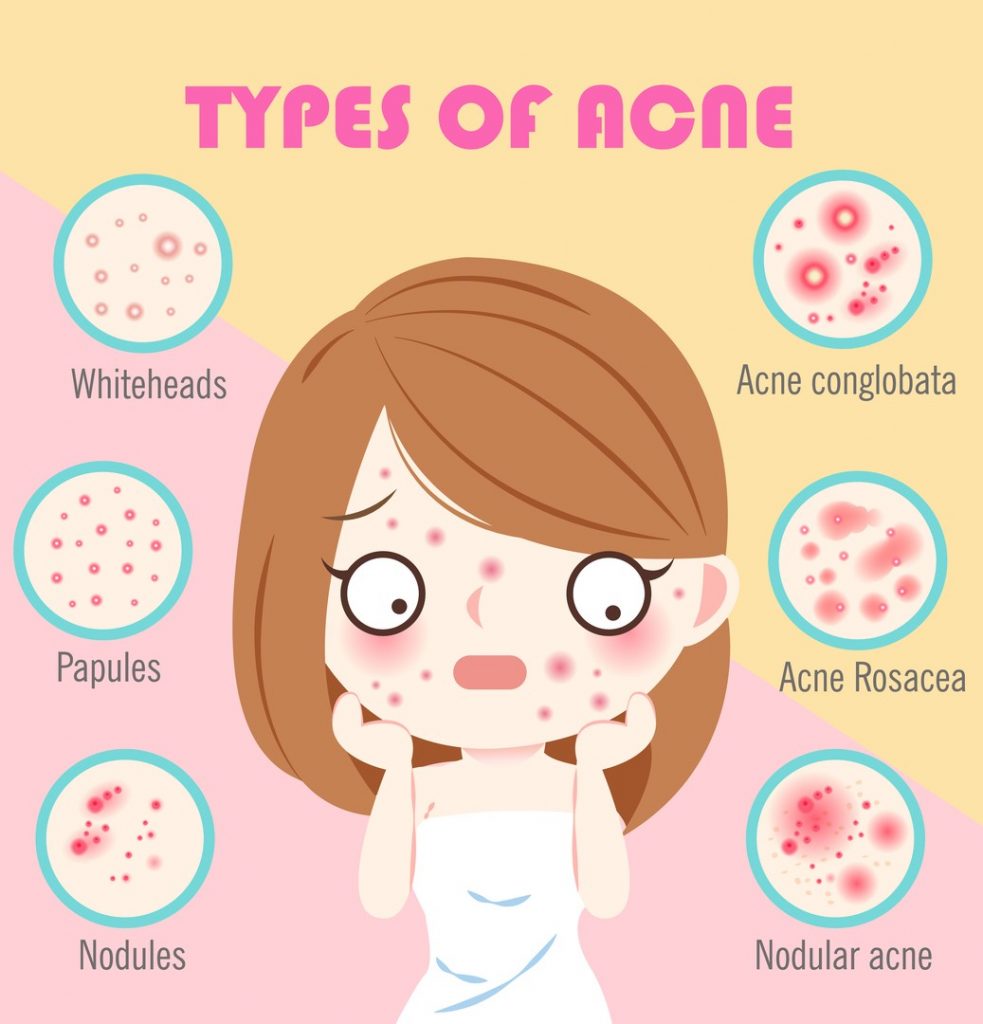
There is a very large marketing industry dedicated to treating acne, but unfortunately not all treatments come with scientific research behind their claims. What works for one person may not work for another and often the over the counter acne treatments can leave our skin even more red, dry and irritated. Research and understanding of the products and options available for acne treatment is the most important aspect in helping make the best decision for choosing a solution.
Cost effectiveness is one of many reasons why people may choose the path of natural remedies for their acne. It is important to note that before using any alternative acne treatment you should do your research. Some “cures” may not have been thoroughly researched and have no scientific backing whatsoever. However, this doesn’t necessarily mean that there is no benefit in trying them out.
We should look at the natural elements around us and try to make adjustments to our lives to minimise the effects of acne on our skin. For example, you may limit artificial heating, avoid harsh winds or intense UV rays and cleanse your skin morning and night. Please view the table below for example of natural remedies:
| Treatment | Healing properties | Mixture | Application | Frequency | Reduces |
| Apple Cider Vinegar | Organic acids | 1 part apple cider vinegar1 part water | With cotton ball | Morning and night | OilScars |
| Zinc supplement | Cell growth Hormone productionMetabolic and immune function | As directed by your clinician | As directed by your clinician | As directed by your clinician | Acne |
| Honey and cinnamon mask | AntioxidantsAnti inflammatoryAnti bacterial | 2 tbsp honey1 tsp cinnamon | Leave on cleansed face for 15 mins | Once a week | OilBacteriaInflammation |
| Tea tree oil | Anti inflammatoryAnti bacterial | 1 part tea tree oil9 parts water | With cotton ball to affected area | Morning and night | BacteriaInflammation |
| Witch Hazel | Anti inflammatoryAnti bacterial | Chemist brand | With cotton ball all over face | Morning and night | BacteriaInflammation |
Australian Botanical Soaps are ethical soap producers whose products contain pure essential oils and components that will not strip your body of its natural oils. Specific bars that may include natural acne remedies include:

Contains natural shea butter extracted from the nuts of the Shea tree.
This will offer a nourishing, soothing and moisturising action leaving the skin clean, supple and hydrated.

Contains activated charcoal from the coconut shell.
This will help draw out excess oil and toxins from the skin pores, leaving your skin hydrated and nourished.
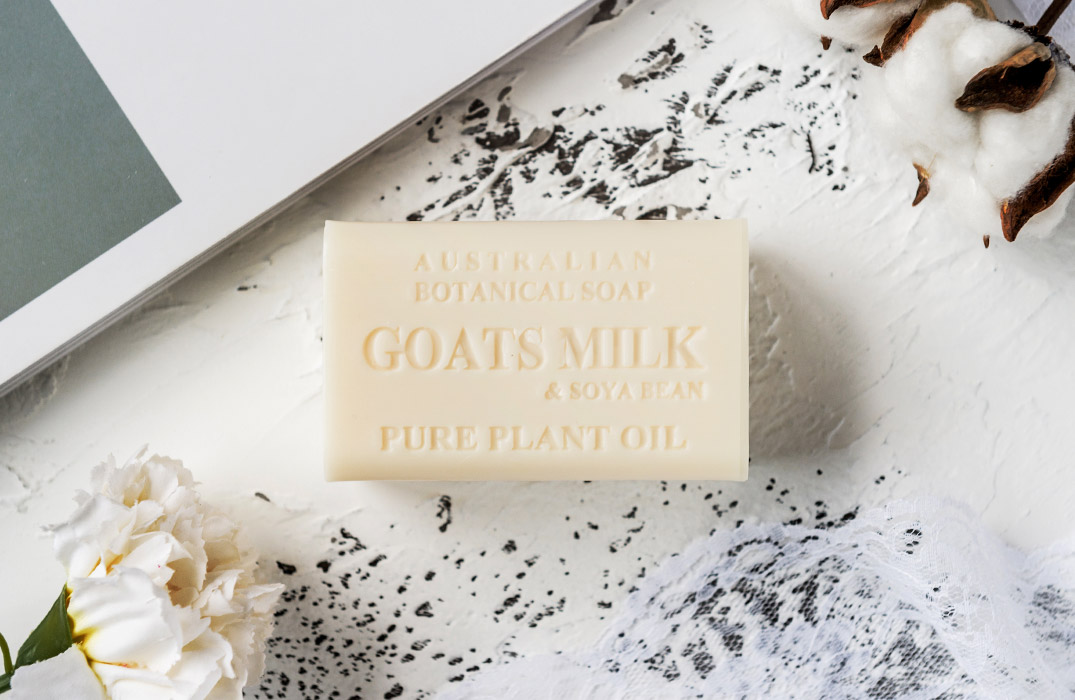
Contains pure goats milk sourced from south eastern Victoria blended with soya bean oil.
Australian Botanical Soap produces one of the best goats milk soap bars available which is perfect for those who have sensitive skin as it is mild and will not strip the natural oils produced by your skin.
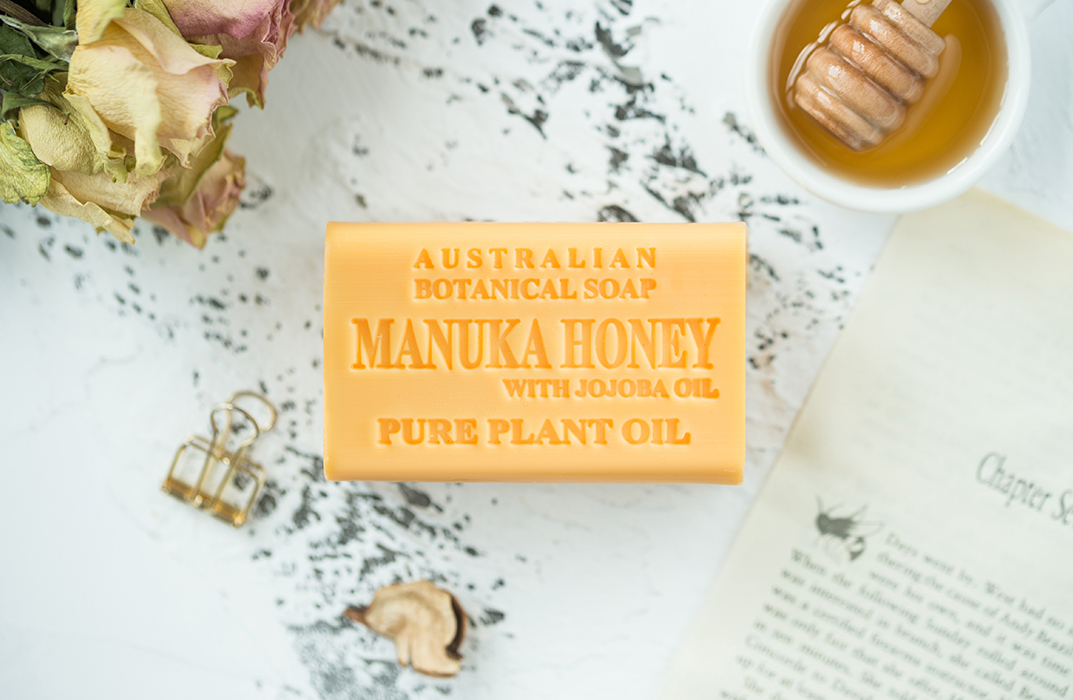
Contains 100% pure Manuka Honey sourced from New Zealand and Jojoba oil taken from the seeds of the Jojoba plant.
This makes it a very gentle but moisturising bar suitable for all skin types. It maintains the skin’s natural hydration, smoothness and elasticity.
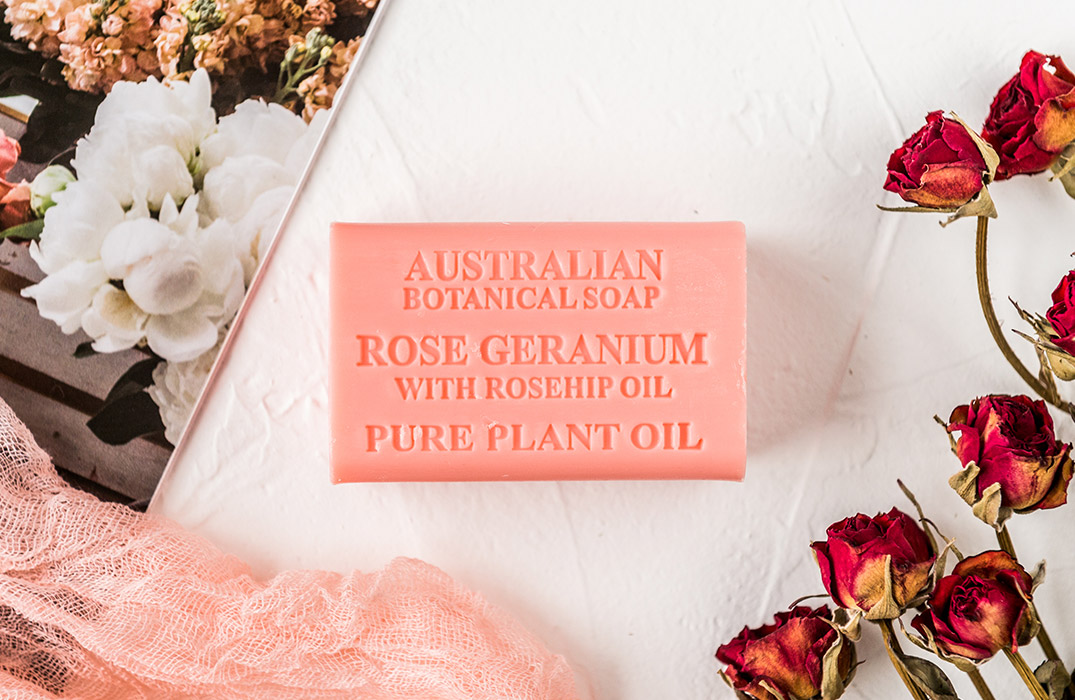
Contains rosehip oil which is pressed seed oil extracted from the wild rose bush, ideal for cleaning and moisturising the skin.
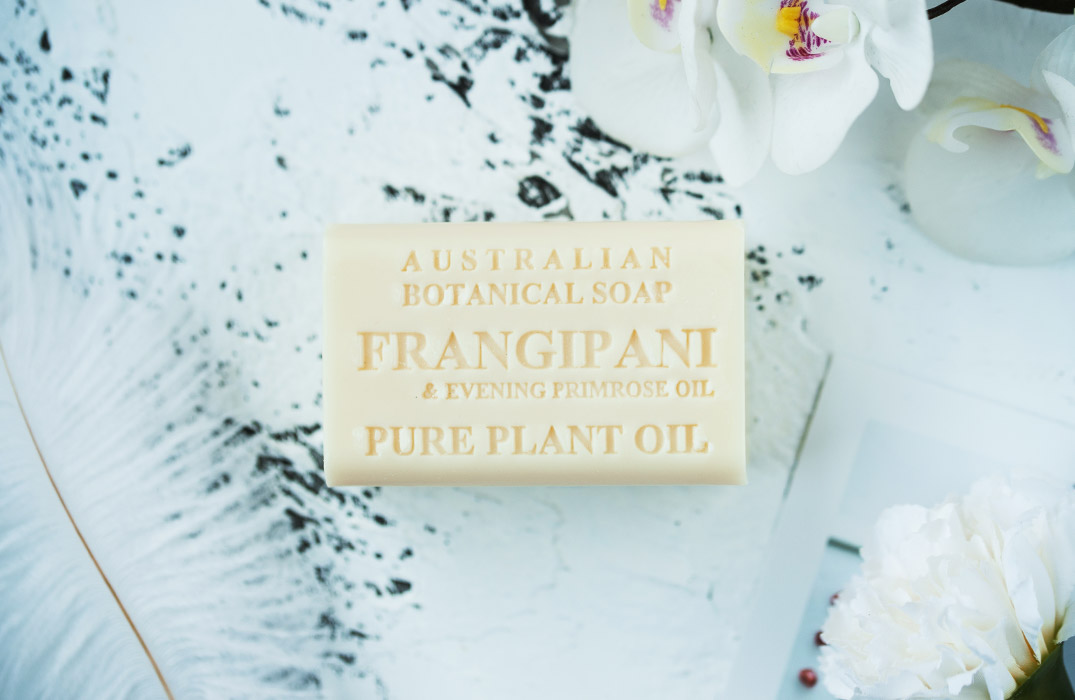
Contains frangipani from north Queensland blended with evening primrose oil extracted from the flowers which soothes problem skin conditions.

Containing natural oil from the mango kernel.
Any natural oils with hydrate our skin and this sweet smelling soap will moisturise your skin and have you smelling like summer.
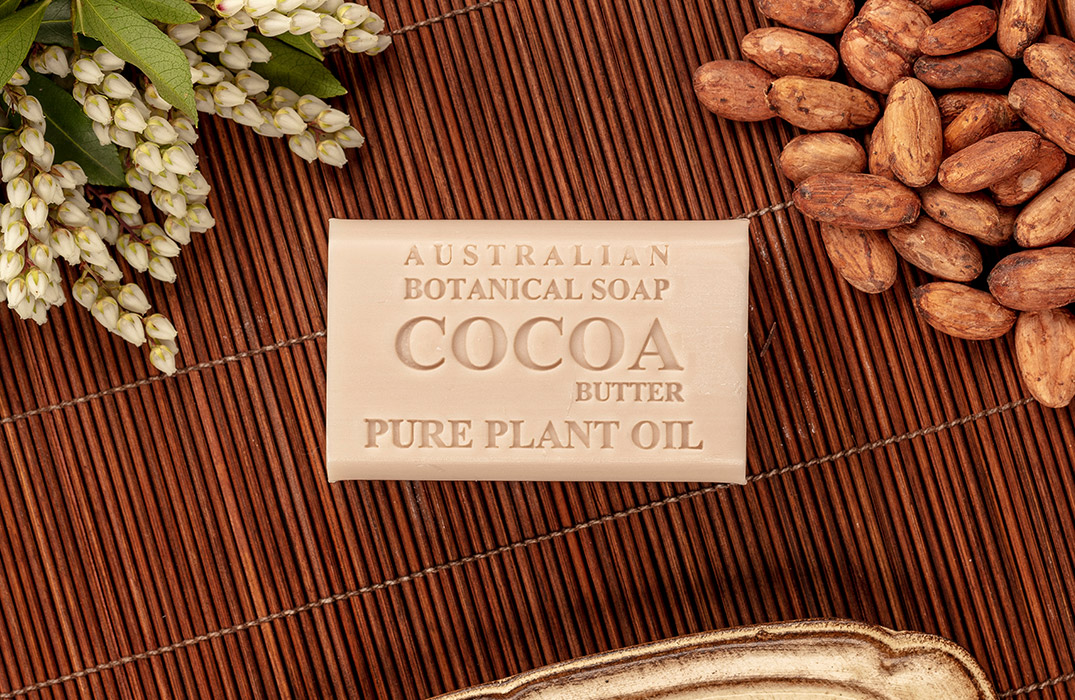
Contains natural cocoa beans which is considered a “super fat”.
These natural fats will moisturise the skin without promoting any extra oil production.
Everyone has their own daily routine for keeping clean – it might include a hot or cold shower, washing your hair and brushing your teeth. For many it will also include the use of a range of hygiene products.
We all perform our routine differently, and it goes without saying that what works for one person may not necessarily work for another. For example, maybe you shower at night instead of first thing in the morning, or maybe you wash your hair (with product) every 3rd day instead of every 2nd day. Do you wash simply with soap in the shower, or do you have a dedicated routine which involves a number of products?
So when we ask the question “How often should I wash?”, not only are we delving into a personal and perhaps awkward subject, but we are also attempting to answer a question which does not have a definitive answer.
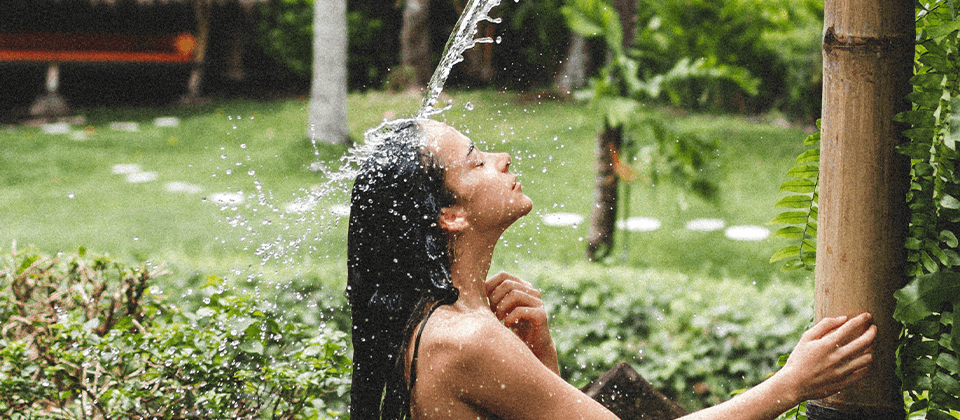
It appears to be widely accepted by dermatologists that washing our bodies every day is too much, as this strips the skin of its outer layer of moisture and leaves our skin unprotected against drying elements including artificial heating, harsh wind, UV rays and pollution.
According to the Harvard Medical School’s Robert H. Shmerling, MD, showering every day can in fact have some negative health impacts on your skin such as
– dry/itchy skin
– higher possibility of skin infection due do dry/cracked skin
– the wrong soap can kill off good bacteria
– reduction of the ability of the immune system to do its job effectively
There is one obvious symptom that may be a clear sign of a person who doesn’t wash very often – body odour. Bacteria naturally grows on our bodies, and when allowed to develop in the armpit a noticeable smell can occur. To combat this deodorants, soaps and other products are designed to mask these smells so that we instead have a pleasant fragrance around our peers.
We have acknowledged that we do not need to wash with soap every single day, but there is no hard and fast rule about not washing enough. By not washing your body you allow dirt and bacteria to build up on your skin, which can inadvertently lead to skin issues not to mention an offensive smell. While it’s important to remember that we don’t need to wash every day with soap, we should also keep in mind that not washing enough can obviously have a negative effect on your body.
Natural soaps are important when it comes to maintaining the health of our skin and a quality product will have pure essential oils added. These oils are small enough to penetrate the deeper layers of our skin and once absorbed, the components of the essential oils mix with the natural oils in our skin to balance, regulate and rejuvenate.
Use natural ingredients for your skin
Some skin care products use fillers which are synthetic based materials which do not come from nature and in many cases can harm our skin. Natural ingredients can assist in restoring and rejuvenating our skin with elasticity and the repair of free radical damage, a good example is Vitamin C. Once absorbed by the skin it can boost collagen production, increase blood flow and oxygen to the skin, as well as repair free radicals damage. This will help with the appearance of fewer lines, greater tightness of the skin and more importantly, protect the skin from further damage from the elements.
Natural ingredients which help promote good skin include:
| NATURAL INGREDIENT | BENEFIT FOR SKIN |
| Mango Oil | Moisture, Hydration |
| Jojoba Oil | Hydration, Elasticity |
| Manuka Honey | Smoothness |
| Soya Bean Oil | Hydrates |
| Goats Milk | Balances PH levels, |
| RoseHip Oil | Cleans, Moisturises |
| Evening Primrose Oil | Soothes Irritated Skin |
The skin is your largest organ and its job is to protect you. It works hard to produce oils with the intention of keeping the moisture in and the nasties out. The skins’ natural oils are the first line of defence for dirt, grime and bacteria. They become trapped in the oils and stay there until the next wash.
You may be thinking the grime and bacteria is exactly what you want to get rid of but a little dirtiness is good for us, it builds up immunity and helps our system work to regulate all parts of the body according to the way nature intended.

Washing your hair daily doesn’t give it that healthy shine, the natural oils do. Healthy hair that is washed only a couple of times a week is easier to manage and if you have an artificial colour in your hair, washing it daily will only wash the colour out faster.
Spoiling dad is really easy this Father’s Day with some special soap choices that will awaken his senses and have him smelling fresh all day. Personal hygiene is something men nowadays pride themselves on. There has been a boom in men’s personal care products so why not treat dad this Father’s Day to his own personal soap collection? The good news is you can order them online or purchase from a participating supermarket.
For some men, the only personal care information they received throughout their life was a quick lesson on how to shave. Good personal hygiene is much more than that. We are not asking men to spend as much time on themselves as some women do, but we have prepared a checklist of the daily must do’s for a man to leap into the day looking and smelling fresh. Most women will tell you a clean shaven, fresh smelling man is hard to resist.
Most women have probably chosen a soap based on its scent and to suit our skin sensitivities but what about our men? Australian Botanical Soaps have an extensive range of soaps to suit all skin types as well as contemporary scents and colours so dad can have his own special soap just for him.

Dad has trouble sleeping
If Dad has trouble getting to sleep, the best thing to do is have a warm shower before bed and use a soap that has some relaxing ingredients to help him nod off naturally. The best soap he could use would be the lavender essential oil blend. The ingredients come from Tasmanian lavender farms and the essential oil will help relax his mind and body. Send Dad to bed with a cup of hot chocolate and he will be thanking you for the best fathers’ day ever!

Dad has trouble waking up
If Dad has trouble waking up in the morning, he could have a shower and wash himself with a soap that will revitalise and get him ready to face the day energised! This soap would be the lemongrass with lemon myrtle. With native lemon myrtle from northern NSW, this scent will help Dads brain switch on and be ready for action. He’ll smell pretty good too.

Dad has sensitive skin
Sensitive skin is Australian Botanical Soap’s specialty. All the soaps have pure essential oils and most of the other ingredients are derived from plants which means they leave out the artificial nasties. The goat’s milk with soya bean oil would be perfect for irritated skin. It very gently moisturises and nourishes whilst the soya bean oil hydrates the skin.
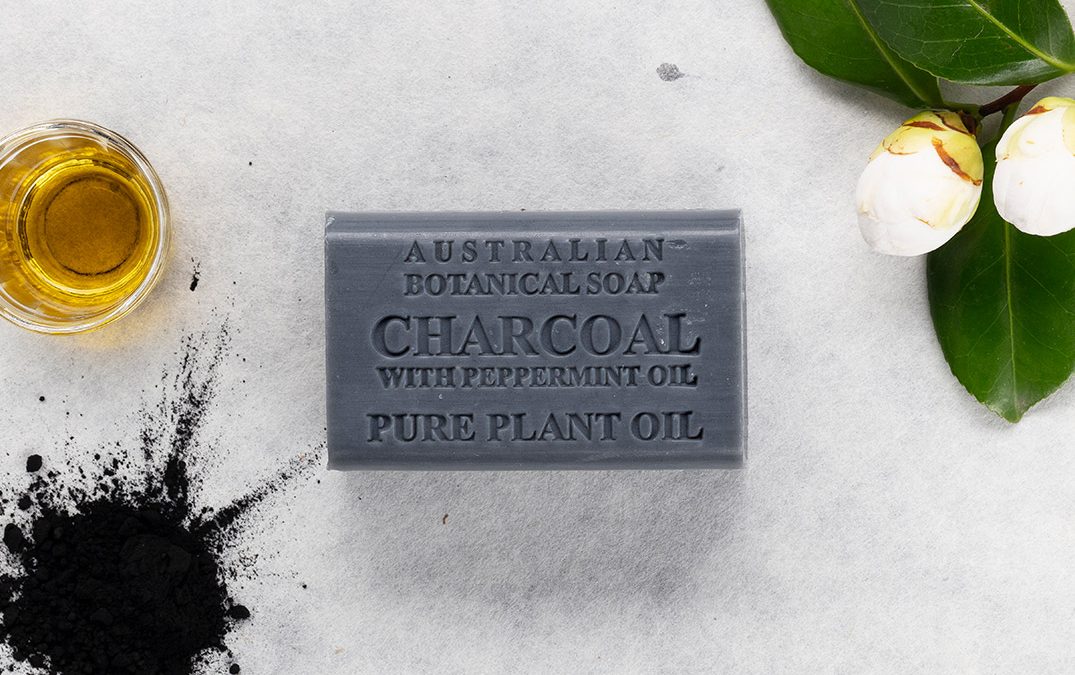
Dad likes a masculine soap
Why not try the charcoal with peppermint blend? It will draw the excess oils and toxins out of the skin and the peppermint will give him that fresh scent. Did we mention it’s black? Very masculine.
Australian Botanical Soaps are readily available at local supermarkets or online and are very affordable so head in today and buy a few different bars you think dad might like. Find a nice box to present them and tell him why you choose those special bars for him. He will appreciate that you have thought about what he likes and be reminded of your special gift every day for weeks to come.
At this time of year our skin really bears the brunt of the cold winter weather. We tend to stay indoors more, which for many of us means we are regularly within an artificially heated environment. Outside our skin is exposed to UV rays, harsh winds and pollution. Your skin is not loving this and may be affected more than you realise.
This is why natural soaps are very important in maintaining the health of our skin. A good natural soap will have essential oils added. These oils are small enough to penetrate the hard to reach layers of our skin. When they are absorbed, the properties of the essential oils mix with the natural oils in our skin to balance, regulate and improve the skin.
Harsh winds and dry air remove natural oils from the epidermis, the first layer of protection on the skin. This can sometimes make it dry and itchy. If you suffer from skin conditions such as eczema or psoriasis, chances are your conditions will be worse in the Winter months.

The main aim is to help protect our dry winter skin but also replenishing the lost natural oils.
The best protection nature has given us against dry itchy skin is fatty acids. Fatty Acids are found in foods high in Omega 3 and Omega 6. Foods such as fish, seeds, nuts and plants oils.
Nuts are a really good source of whole food. You don’t need to do anything to them to prepare them for consumption. Keep a small jar or your favourite nuts in the car. Not only do they have good fatty acids, they stop a hunger dead in its tracks. The Organic Shea Butter that is used in our soap bar has the same qualities and can act as an anti-inflammatory and moisterise dry skin.
Avoid hot lengthy showers or baths. We often want to just “thaw out” under a long hot shower, but unfortunately, this can be one of the worst things for our skin. It dries and irritates the area.
Try wearing more breathable fabrics such as cotton, rayon, linen and silk. Although these materials don’t scream warmth to us, remember – it is only the material we need to put next to our skin that needs to be breathable. We can add layers and finish off with fabrics like wool and polyester.
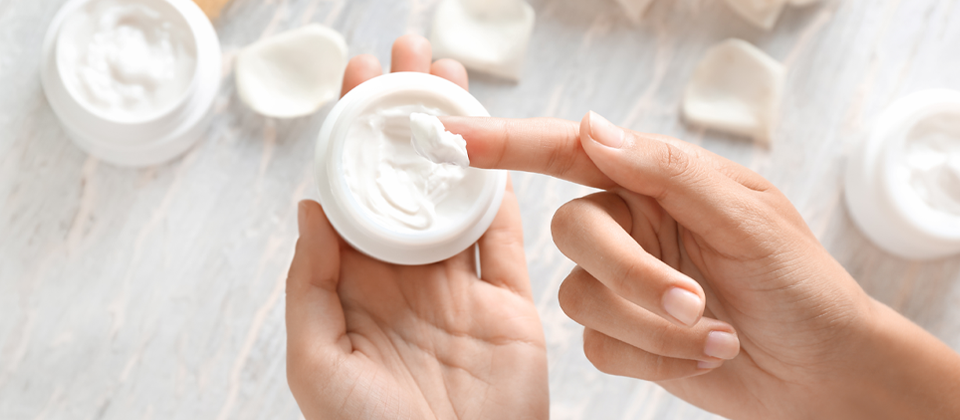
Hand cream can be a girl’s (or guys) best friend in the colder months. Keep a tube in the insert of the door of your car. It’s a quick little job you can get done waiting for the lights to go green. It is a great way to help prevent our skin from drying out.
Try exfoliating at least once a week. Our dead skin cells increase at this time of year so it is important to keep up the exfoliation practice to remove the dead cells, giving the healthier cells a chance to emerge. By leaving the dead skin cells, they will clog the pores creating further skin irritation.
Wear gloves. If you are the person in the home whose hands see the most hot water, pop a set of gloves in all the usual places. The kitchen, the laundry, the bathrooms. Think of how many times a week our hands are in water. I find if I have to go for the one set all the time in the kitchen, I can’t be bothered so having them strategically placed leaves us with no excuses.
Look for products with natural moisture. Read the backs of labels so you can be fully informed. You may have found products that are natural however they may add other ingredients that are moisture robbing, such as parabens and sulphate. Often it is just as important as what is put in a product as what is left out.
Avoid having indoor heating on at night in cold weather. We don’t really need artificial dry heat on at night once we are in bed and it is a good way of reducing our skin’s exposure to this dry heat.
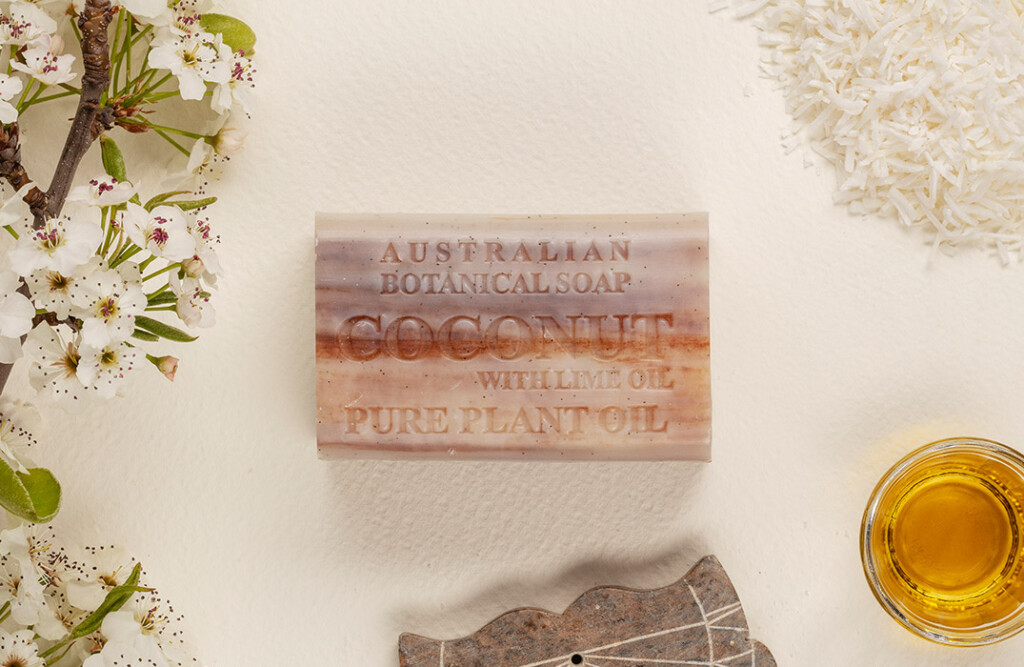

It is ideal to choose a soap with quality natural ingredients that work for your skin in Winter. Not all soaps are made the same or do the same job.
Australian Botanical Soaps are pure plant oil soap bars made in Australia from the finest ingredients and they do not dry out the skin. There are many types to choose from and all bars are infused with a light yet long lasting fragrance.
Coconut with Lime Oil – Made with ingredients to enhance your mood and works great as an exfoliating bar with finely crushed naturally sourced coconut shell.
Goats Milk with Soya Bean Oil – Perfect for those with sensitive skin needing a gentle cleanse. Good for keeping your skin moisturised.
Our skin is the largest organ we have, so it makes sense to protect it with the right clothing and good natural moisturising products.
| FEATURE | BENEFIT 1 | BENEFIT 2 |
| Made from pure plant oil | You know it’s all natural | Good for human bodies |
| Triple milled | Allows the ingredients to be mixed together evenly | Gives the bar more density. No bar of soap will last longer than an ABS bar |
| High glycerine content | Only found in plants – all natural | Natures natural moisturiser |
| Manufactured with natural ingredients | No artificial additives that can be harmful to skin | Good for the environment |
| Family owned and operated | They take it personally | Real people making real decisions with wellbeing |
| Product is in big retailers overseas | Trusted the world over | Why are America and China choosing ABS? It’s the best |
| Found in large and small retailers | You should be able to find it in your area | Can also purchase online |